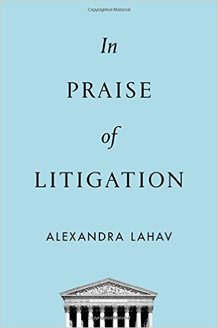
which carries the subtitle "What happened to the global economy and what we can do about it." Kwak is co-author of the important book about the most-recent crash, 13 Bankers:
13 Bankers describes the rise of concentrated financial power and the threat it poses to our economic well-being. Over the past three decades, a handful of banks became spectacularly large and profitable and used their power and prestige to reshape the political landscape. By the late 1990s, the conventional wisdom in Washington was that what was good for Wall Street was good for America. This ideology of finance produced the excessive risk-taking of the past decade, creating an enormous bubble and ultimately leading to a devastating financial crisis and recession.
More remarkable, the responses of both the Bush and Obama administrations to the crisis–bailing out the megabanks on generous terms, without securing any meaningful reform–demonstrate the lasting political power of Wall Street. The largest banks have become more powerful and more emphatically “too big to fail,” with no incentive to change their behavior in the future. This only sets the stage for another financial crisis, another government bailout, and another increase in our national debt.
The alternative is to confront the power of Wall Street head on, which means breaking up the big banks and imposing hard limits on bank size so they can’t reassemble themselves. The good news is that America has fought this battle before in different forms, from Thomas Jefferson’s (unsuccessful) campaign against the First Bank of the United States to the trust-busting of Teddy Roosevelt and the banking regulations of the 1930s enacted under Franklin Delano Roosevelt. 13 Bankers explains why we face this latest showdown with the financial sector, and what is at stake for America.
From his post on "In Praise of Litigation:"
If you think that your rights have been violated, you can sue to enforce them. This is particularly important if your rights have been violated by a state or by the federal government, because in that case it’s unlikely that a government agency is going to take your side. The right to sue is arguably the most fundamental right that exists, because it is the right to have rights in the first place. For example, the Sixth Amendment (as interpreted in Gideon v. Wainwright) says that you have the right to an attorney if you are charged with a felony. But many states and localities refuse to pay for lawyers for the poor; see Dylan Walsh in The Atlantic, or the story of Jack Bailey on This American Life, for example. So you have to sue. A series of lawsuits by the Southern Center for Human Rights led to the creation of the Georgia public defender system, and the Southern Center continues to challenge judicial circuits that fail to provide sufficient representation for poor defendants.
But the right to sue is slowly being limited, not just by “litigation reform” acts but particularly by Supreme Court decisions that made it harder for plaintiffs to challenge secret wrongdoing by companies (Bell Atlantic), enhanced government officials’ immunity from private lawsuits (Iqbal), enforced mandatory arbitration clauses in standard form contracts (AT&T Mobility v. Concepcion, American Express v. Italian Colors Restaurant), limited the jurisdictional reach of federal courts (J. McIntyre Mach. v. Nicastro), and prevented plaintiffs from obtaining injunctions against illegal government actions unless they could prove that they were likely to be harmed by those actions again in the future (City of Los Angeles v. Lyon). The common theme is increasing restrictions on the ability of ordinary people (or small businesses in some cases) to challenge illegal actions by large companies and governments. But no one ever said, “Your rights are being limited.” Instead, changes in legal procedure effectively increased the cost of enforcing those rights—in some cases to infinity.
 RSS Feed
RSS Feed
